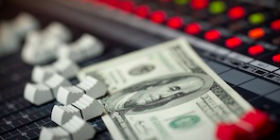Preparing For Your Interview
What do you do when someone contacts you for an interview? Do you have a set process, a standard one sheet to send them? Do you have a publicist that gives you information about what they’re looking for? Preparing for an interview is key to keep it lively and interesting. Here are tips about getting ready:
- Prepare a One Sheet: Think of your media one sheet as a resume: list the main bullet points about your music career and a list of accomplishments or anecdotes. Not every journalist will have time to thoroughly research you first and having some kind of guideline will help. In fact, some may even request that you bring a list of talking points or topics of interest.
- Set a Goal: What do you hope to take away from the interview? Some more press? A review? Some promotion about your tour or new record? Try and keep your answers somehow related to your overall goal.
- Do Some Research: Take some time to go through the source: look at other interviews and features that they’ve done to get a vibe of their style, what things they find interesting, and who their audience is. Find out as much as you can about the format, interview length, and how it will be shared. Cater your responses to what you find.
- Practice: Just as you’d want to prepare for a job interview, run through some typical questions that you’ll be asked: inspiration, your band’s history, talking about the new album, etc. You want your stories to be smooth, consistent, and concise. It seems easy but the more you go through it, the more you can keep it interesting and flowing well.
During the Interview
It is becoming increasingly rare for artists to be coached for interviews. There’s just a general assumption that it’s only about answering questions given to you, whether it is by email, phone, or on camera. However, there’s an art to keeping your audience’s attention as well as encouraging them to share the piece. Keep these things in mind:
- Engage the Audience: Don’t just interact with the person asking the questions. Think about their audience and yours: is this something that they really want to read, listen to or watch? How can you make things more of an interactive experience rather than a spectator’s event? Perhaps you can get people listening/watching to use a Twitter hashtag or interact on social media…
- Use Complete Sentences: This is especially important for email interviews. Journalists want to be able to use pull quotes from you but it’s harder to create a story if you’re only using fragments. An easy way to do this is to include part of their question in your answer. It may seem obvious but it’s a folly I find artists doing again and again.
- Avoid Assumptions: Don’t assume that the audience or interviewer understands your band’s history, inside jokes, accomplishments, or struggles.
- Tell a Story: Stories are more interesting than facts. They also retain audiences better. While answering questions, try and find ways to inject an occasional anecdote. Instead of talking about your influences, tell a story about how you found an artist, fell in love, and how that worked its way into your music. People love conflict and controversy.
- Emotion, Tone: All of the most viral content in the world has this in common: it strikes a chord with the audience’s feelings. Look at any news site or YouTube and the most shared content for the day, you’ll see this trend. It might be something funny, enraging, sad, or inspirational but it all has some kind of emotional tone to it. Some things have both. Don’t be afraid to interject a little humor or something that gets people fired up.
After the Interview
After the interview has been completed, you’ll want to take the following steps.
- Give Thanks: A simple email note to the interview and media source is all that’s required to keep in good graces. A handwritten note, invitation to a show as a guest, or token of appreciation is even better. You’d be surprised how a little thoughtfulness can go a long way. Five ago, I mailed one of our band’s lighters and a thank you note to a local radio station DJ who featured one of our songs in air. When I visited the station last month on other business, I ran into him and he showed me that he still had the lighter prominently displayed at his desk with the note next to it. After that, I sent him our new album, which he’s been sharing around the station.
- Promote It: Nothing will make the interviewer and their bosses happier (and more likely to give you more features) than if your piece received a lit of traffic. Tell your fans to check it out and share, tell them more than once. The average tweet has a half-life of eighteen minutes. In other words, you’ll want to do more than just one social media blast. Get people to share, engage on the interview page (if it’s online) or interact with the station that airs it via social media.
- Save It: Archive the piece any way that you can: save the website as a .pdf, audio or video file, scan the printed piece, etc. Include it in your list of media received for your press kit. Look for quotes that or other interesting bits that you can use. When you’re booking shows in the area of the interview’s audience, be sure to mention it to the promoter.
In conclusion…
The main thing is that you want to approach interviews with some thoughtfulness, consideration, and preparation. In other words, be proactive about how you want your music to be represented rather than just reacting to whatever interview comes your way. A small piece for an online zine can turn into so much more and lead to many connections if you just learn how to maximize your opportunities with each interview presented.






